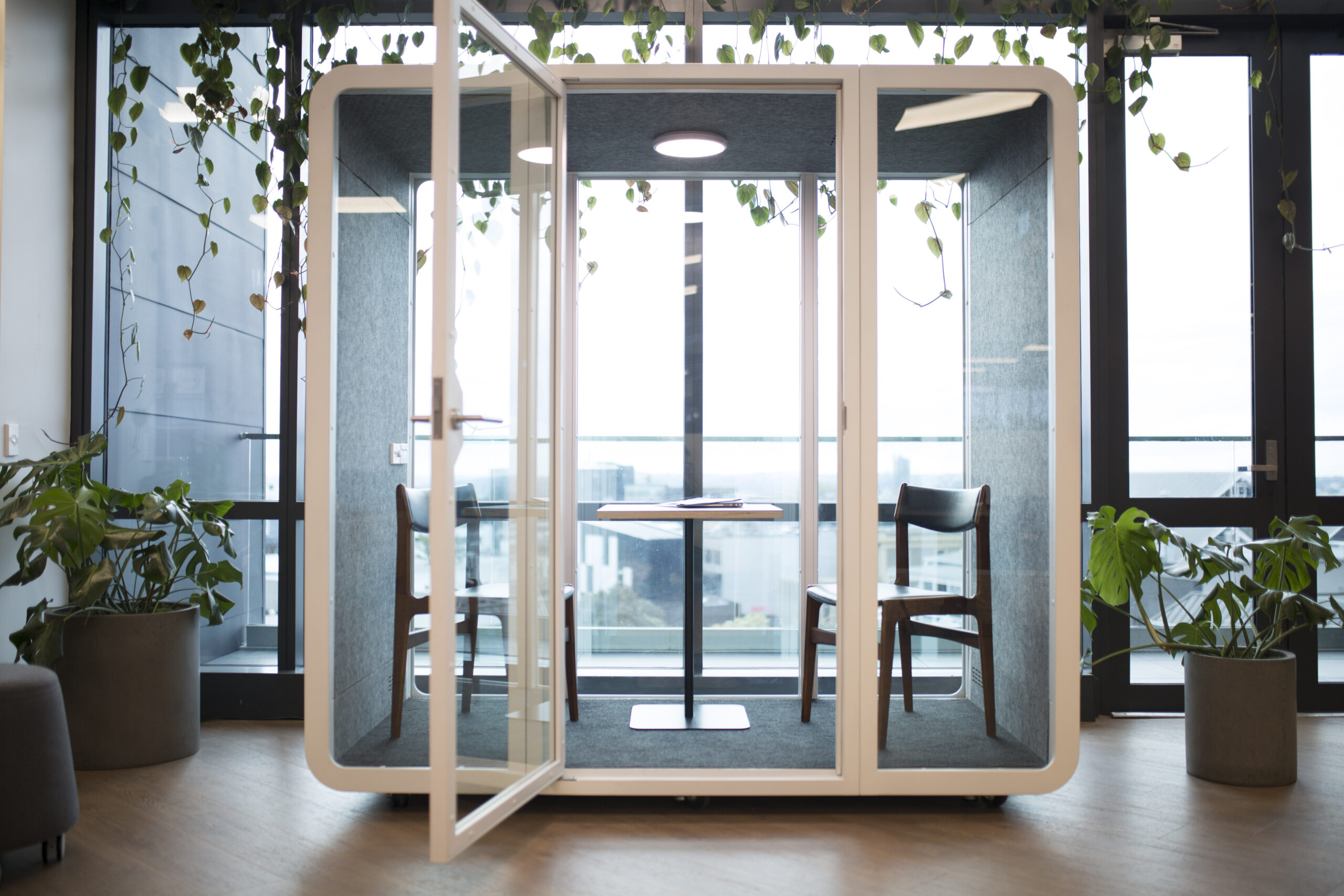
The modern workspace has evolved to accommodate diverse working styles, and acoustic phone booths have emerged as a popular solution for enhancing privacy and focus in open-plan offices. With the increasing global emphasis on sustainability, eco-friendly acoustic phone booths are becoming more sought after. In this article, we’ll explore the sustainable materials and design approaches used in the creation of these environmentally-conscious booths.
Sustainable Materials
Natural Insulation: One of the key components of an acoustic phone booth is its ability to insulate sound. Eco-friendly booths use sustainable insulation materials like natural wool, which is not only effective in absorbing sound but also has a low environmental impact compared to synthetic materials. Silent Pod, for instance, offers the option to line their pods with Floc wool, an eco-friendly and highly effective insulation material.

Recycled Materials: Many manufacturers are incorporating recycled materials in the construction of acoustic phone booths. For instance, reclaimed wood, recycled plastic, and upcycled metal can be used for the booth’s structure, reducing waste and the demand for virgin materials. New Zealand-based company Silent Pod, for example, utilizes Floc wool, a sustainable and eco-friendly insulation material, in their phone booths.
Design Approaches
Modular Design: A modular design approach allows for easy assembly, disassembly, and relocation of phone booths. This flexibility ensures that the booths can be adapted to the changing needs of a workspace, reducing the likelihood of discarding them and contributing to a longer lifespan.
Energy Efficiency: Eco-friendly acoustic phone booths often incorporate energy-efficient features like LED lighting, occupancy sensors, and energy-saving ventilation systems. These features help reduce energy consumption and carbon footprint, making the booths a sustainable choice.
Customizable and Adaptable: By offering customizable options, such as size, materials, and finishes, eco-friendly acoustic phone booths can be tailored to meet the unique needs and preferences of users. This adaptability helps minimize waste by reducing the likelihood of replacing the booths when the workspace’s design or requirements change.
Eco-friendly acoustic phone booths not only provide much-needed privacy and focus in open-plan offices but also contribute to a greener and more sustainable workspace. By incorporating sustainable materials and design approaches, these booths demonstrate that it is possible to achieve a balance between functionality, aesthetics, and environmental responsibility. As demand for sustainable solutions continues to grow, the popularity of eco-friendly acoustic phone booths is set to rise, transforming the way we perceive and interact with our workspaces.